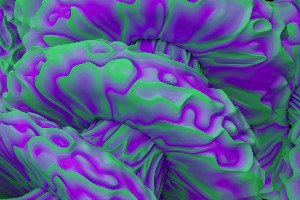Achmat Sodikkun, Kholiq Budiman
Improving Pantun Generator Performance with Fine Tuning Generative Pre-Trained Transformers
Introduction
Improving pantun generator performance with fine tuning generative pre-trained transformers. Fine-tuning GPT models with post-processing significantly improves Indonesian pantun generation, achieving 89% rhyme accuracy. Boosts cultural preservation and creative applications.
Abstract
Purpose: The study aims to address the challenges in generating high-quality pantun, an important element of Indonesian cultural heritage. Traditional methods struggle with limited vocabulary, variation, and consistency in rhyme patterns. This research seeks to enhance the performance of a pantun generator by applying fine-tuning techniques to the Generative Pre-trained Transformers (GPT) model, coupled with post-processing, and validated by linguistic experts. Methods/Study design/approach: The research involves fine-tuning the GPT model using a dataset of Indonesian pantun. The methodology includes dataset collection, data pre-processing for cleaning and adjustment, and hyperparameter optimization. The effectiveness of the model is evaluated using perplexity and rhyme accuracy metrics. The study also incorporates post-processing to refine the generated pantun further. Result/Findings: The study achieved a best perplexity value of 14.64, indicating a strong predictive performance by the model. Post-processing significantly improved the rhyme accuracy of the generated pantun to 89%, a substantial improvement over previous studies by Siallagan and Alfina, which only achieved 50%. These results demonstrate that fine-tuning the GPT model, supported by appropriate hyperparameter settings and post-processing techniques, effectively enhances the quality of generated pantun. Novelty/Originality/Value: This research contributes to the development of generative applications in Indonesian, particularly in the context of cultural preservation. The findings highlight the potential of fine-tuning GPT models to improve language generation tasks and provide valuable insights for creative and educational applications. The validation by experts ensures that the generated pantun adheres to established writing standards
Review
This study presents a compelling approach to enhancing the generation of Indonesian pantun, a culturally significant poetic form, by leveraging state-of-the-art Generative Pre-trained Transformers (GPT) models. The authors effectively identify the limitations of traditional methods in terms of vocabulary, variation, and rhyme consistency, setting a clear objective to improve the quality of generated pantun through fine-tuning and post-processing. This research is particularly valuable given its focus on a specific cultural artifact and its contribution to the field of natural language generation in a non-English context. The methodology employed, encompassing dataset collection, pre-processing, hyperparameter optimization, and a dual evaluation metric (perplexity and rhyme accuracy), appears robust. The results are particularly impressive, with a reported perplexity value of 14.64, indicating strong predictive capabilities. Crucially, the significant improvement in rhyme accuracy to 89% through post-processing stands out as a major achievement, far surpassing previous benchmarks. This demonstrates the effectiveness of the proposed hybrid approach, combining the generative power of fine-tuned GPT with targeted refinement techniques, and provides strong evidence for the practical utility of their model. The abstract also highlights the critical inclusion of linguistic expert validation, which adds a vital layer of credibility regarding the cultural and artistic quality of the generated output. This research offers substantial novelty and value, primarily by demonstrating the potent application of fine-tuned GPT models for cultural preservation and creative content generation in Indonesian. The findings not only advance the state-of-the-art in pantun generation but also provide broader insights into the potential of large language models for specialized language tasks and creative applications. The expert validation component is particularly commendable, bridging the gap between computational metrics and human interpretability of poetic quality. This work is a significant contribution to both natural language processing and digital humanities, opening avenues for future research in culturally sensitive generative AI.
Full Text
You need to be logged in to view the full text and Download file of this article - Improving Pantun Generator Performance with Fine Tuning Generative Pre-Trained Transformers from Recursive Journal of Informatics .
Login to View Full Text And DownloadComments
You need to be logged in to post a comment.
Top Blogs by Rating
Blockchain: Building the Inter...
By Sciaria
Unleashing the Now: Why Dance...
By Sciaria
Unlearn to Evolve: Your Superp...
By Sciaria
Favorite Blog
The Brain's Ultimate Illusioni...
By Sciaria
The Microscopic Masterminds: D...
By Sciaria
Parasites: The Unsung Architec...
By Sciaria
Related Research
Das hörende herz. zum personverständnis in israel und Ägypten
Dialektika budaya toraja dan inklusifitas pendidikan agama kristen dalam masyarakat majemuk
Kritik terjemahan kata hur dalam al-qur'an kementerian agama persfektif qira’ah mubadalah
Share
Notice Board
- KEPATUHAN PAJAK DI ERA COVID-19: ANALISIS PENGARUH INSENTIF, SANKSI, PENGETAHUAN, DAN PELAYANAN PAJAK YANG DIMODERASI OLEH SOSIALISASI PAJAK
- 'WEIRD, WILD OR WANTON': DEBORAH WARDLE, JULIENNE VAN LOON, STAYCI TAYLOR, FRANCESCA RENDLE-SHORT, PETA MURRAY, DAVID CARLIN, EDITORS. A TO Z OF CREATIVE WRITING METHODS
- DETERMINANTS OF LOCAL GOVERNMENT REVENUE AND ECONOMIC POTENTIAL: PATHWAYS FOR REVENUE ENCHANCEMENT





